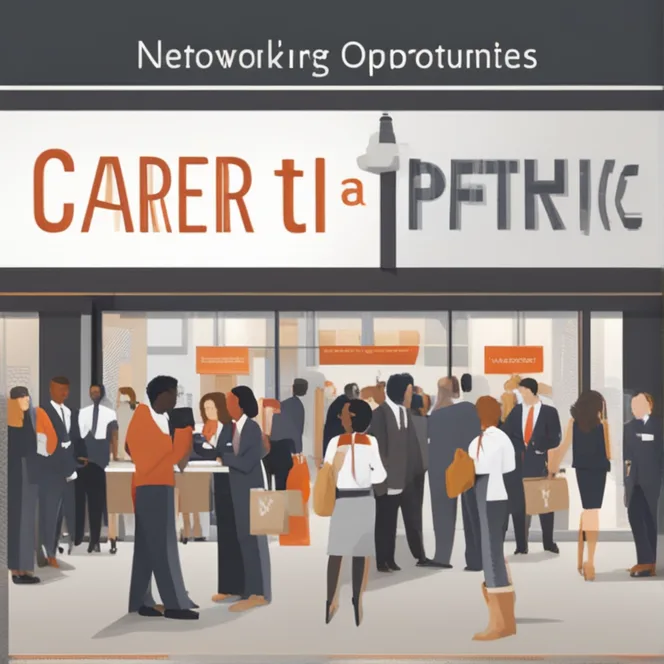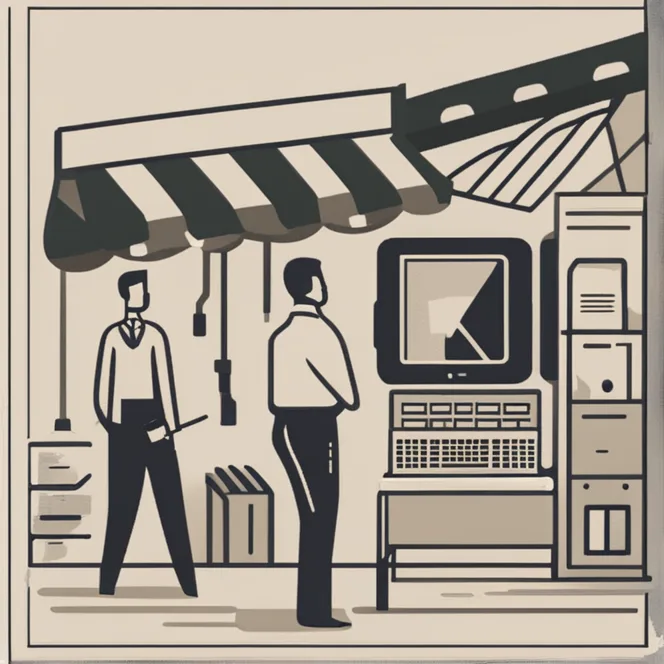
Unlocking The Potential Of Career Fairs
Explore the efficiencies of career fairs for professional advancement and networking opportunities.
article by Isabella Marquez
Career Fairs: A Brief Overview
Career fairs have been a traditional platform for job seekers to connect with potential employers. These events are crafted to bring a myriad of companies under one roof, allowing candidates to explore various opportunities within a short span of time. The quintessential purpose is to network, disseminate resumes, and potentially land interviews that could lead to employment. For employers, it's a chance to meet a large pool of candidates, brand their organization, and identify potential matches for their vacancies. The effectiveness of career fairs has been subject to debate, with various arguments supporting and contesting their value in the ever-evolving job market landscape.

Networking Opportunities Galore
One significant advantage of career fairs lies in the networking opportunities they present. They allow direct communication between job seekers and employers, which can be a boon for both introverts and extroverts. By engaging in conversations, asking questions, and presenting oneself professionally, attendees can make a lasting impression that might not be as easily achieved through online applications. Moreover, it provides a real-time chance to gauge company culture and roles, offering a more nuanced understanding than job postings typically provide.

The Realities of Competition
While the potential for networking is high, career fairs are often characterized by high competition. Attendees compete for the attention of recruiters, and in such a setting, it can be challenging to stand out. Without preparation, poise, and a clear strategy, candidates may find it difficult to make meaningful connections. To reap the benefits of career fairs, it is crucial to approach them with a well-crafted resume, a succinct elevator pitch, and a familiarity with the companies in attendance.

The Role of Preparation
The effectiveness of career fairs is often proportional to the level of preparation by the attendees. Those who arrive with a solid understanding of the companies present, clear career goals, and tailored resumes are likely to have a more fruitful experience. Preparation also entails practicing self-presentation skills and developing engaging questions to ask recruiters. This level of readiness can significantly elevate a candidate's chances of making a positive impression and securing follow-up interviews.

Leveraging Career Fairs in the Digital Age
In the age of digital communication, some may question the relevance of face-to-face interactions that career fairs facilitate. Despite the proliferation of online job applications and virtual networking tools, career fairs offer an irreplaceable personal touch. They provide an arena for spontaneous interactions, real-time feedback, and the display of interpersonal skills, which remain crucial in the professional world. Furthermore, the growth of virtual career fairs has blended the convenience of digital platforms with the essence of personal engagement.
Measuring the Success of Career Fairs
To determine the effectiveness of career fairs, one must look at the outcomes — interviews secured, connections made, and knowledge gained. While not every participant will leave with a job offer in hand, many exit with valuable industry insights and new contacts that could prove beneficial in the long run. Additionally, these events can bolster confidence, enhance interview skills, and provide a unique opportunity for personal branding and self-promotion.
Tangible Benefits Amidst Challenges
Ultimately, career fairs can be an effective tool for job seekers when leveraged properly. They offer direct access to employers, a platform for networking, and a means of making an immediate personal connection. While not without their challenges, such as competition and the need for thorough preparation, career fairs continue to be relevant and beneficial in the strategic pursuit of career advancement. As with any tool, their effectiveness hinges on how well they are used by the job seeker.
Published: 12/6/2023
Modified: 12/6/2023
More predictions
Come back here soon to learn more about yourself and your future


Climbing the Career Ladder with Astrology
Career progression is often viewed through the lens of qualifications and experience, yet astrology offers a deeper, more personalized understanding of this journey. The planets in our birth chart can significantly influence our professional path, providing insights into our strengths, challenges, and optimal timing for making pivotal career moves. This article explores how each major planet affects career advancement, offering guidance on how to harness these celestial influences for climbing the professional ladder.


Pisces Career Horoscope for November 2023
Dear Pisces, the dreamy and intuitive souls of the zodiac, November 2023 beckons with a blend of challenges and rewards in your career landscape. Guided by Neptune's ethereal touch and the wise Jupiter, the month promises both introspection and action in equal measure.


Venus in the Workplace: Harmonizing Interactions Across Zodiacs
In today's diverse and dynamic work environments, understanding the subtle influences that shape our professional interactions can be a game-changer. Among these influences, the role of Venus, known for governing love, harmony, and cooperation, is particularly significant. This celestial body's impact extends beyond personal relationships, casting a unique influence on how we engage in our workplaces. Each zodiac sign, under Venus's gentle sway, exhibits distinct traits that can enhance teamwork and foster a more harmonious work environment. In this exploration, we delve into how Venus shapes the professional dynamics of each zodiac sign, offering insights into creating a more cohesive and productive workplace.